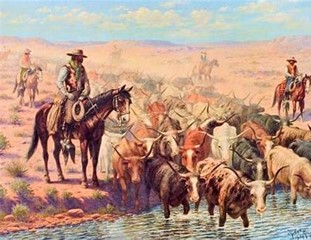
When you read this, we’ll be nearly be in a new year; a year that lots of people are looking forward to. Will we be back to “normal?” Will schools return to “in class learning” this month?
What about restaurants, hamburger places, movie theaters, and every other place where groups of more than 4 to 6 persons are gathered? We will work at home or at an office, or even have employment? Can we visit our relatives far away again? Our lives have changed so much since mid-March and we must adjust.
But Americans have adjusted before and survived. Remember the time when Great Britain ceased settlements to the west of the Appalachians? Remember when Confederate soldiers returned to homes and farms that were destroyed? The two World Wars ended in cease fires but no treaties for some time. In World War II, it would be when President Truman was in his full term before rations of automobile parts, especially rubber products, would be ended.
When soldiers and sailors arrived home from World War I, they found a different way of life. Prohibition cut off all sale and consumption of alcohol. Women could vote in all elections. The stock market and employment rose and rose until it crashed in the late 1920s. The 1930s were dreadful, as bad if not worse than war.
Americans believed they were completely safe from violence in Germany and Japan. After all, a large ocean on both sides protected North America from danger. But inventions in World War I, such as battleships and airplanes were part of the Allies successes. While not used in the two decades between the wars, Americans would quickly resurrect such arms in the late 1930s.
America and her allies realized that war was inevitable and strived to fight the enemy. Today we face, not a military enemy, but an enemy never seen before and extending world-wide. Will we win the fight and go home to continue our ways of life before 2020?
In the Civil War, men from both sides, many physically and mentally impaired, made a change. One example occurred here in Texas as in the cattle industry. By 1866, cattle herds were rounded up and sent off on hoof to cities like Chicago and St. Louis where beef was a prized meat. Industrious men with no cash or credit but great ambition, gathered herds with brands, took control of those beefs with no brands, and agreed with widows who had no money but an able-bodied son or two and a horse they would take them to market, and pay the widows and others when they returned to Texas. Risky as it was, it succeeded most of the time.
I can’t foresee anyone rounding up steers and herding them up Interstate 35 to Chicago, but we will all make some changes. I do a lot of work with the Archives at the Waters Library on the Texas A&M University Commerce campus. That means I drive over to Commerce, find a parking place, enter the library and go to the Archives where I find the papers I want to copy. Not a big deal, but I believe they are working to digitize more and more of the collections. I can then send an email requesting what I need and within two days or less I can print it out at home. The paper is saved at the Archives and doesn’t have to go through that process again. It’s even more helpful when the archives are in Washington, D. C., Austin or any other distant site.
So, let’s thank all the medical staff personnel, teachers, grocers, and others who have put their lives on the line. And to do that, let’s not complain. As children say, “Put on your Happy Face.”
